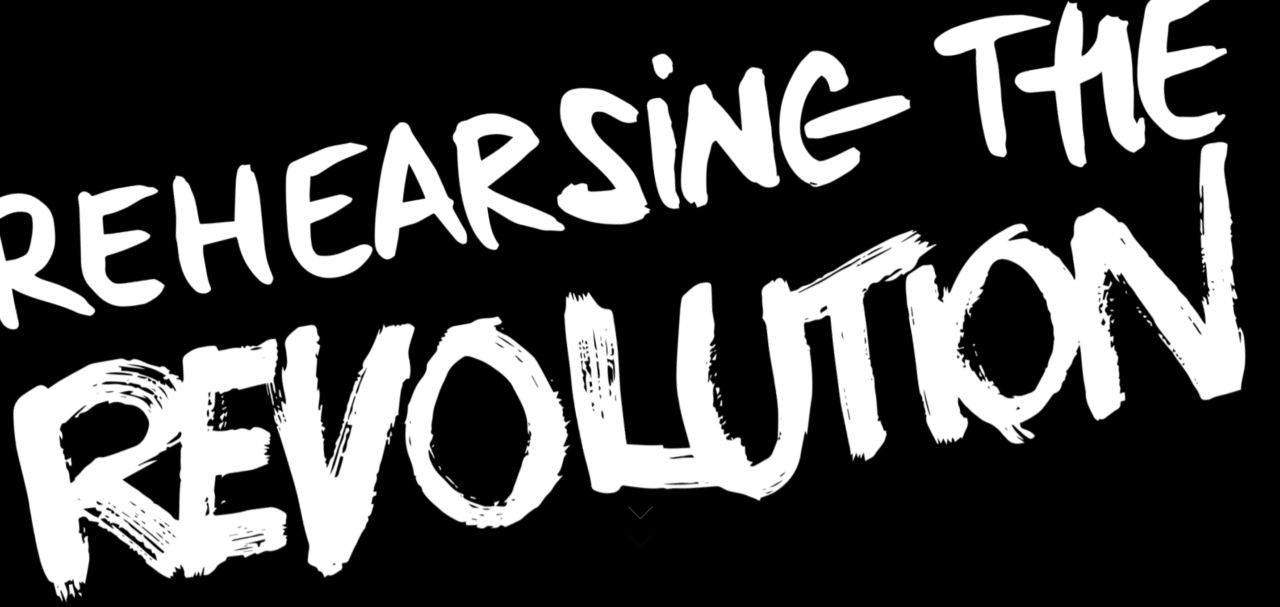Rehearsing The Revolution
4 Oct 2021
A first stage of storytelling project will premiere this week at the Buffer Fringe Performing Arts Festival in Cyprus, in both parts of the city Lefkosia/ Nicosia, in the North and in the South. Some time ago we had a conversation with Petra Ardai, theatre maker, teacher, scenario writer and one of our #CultureofSolidarity grantees.
How did your idea come about?
“The idea of Rehearsing The Revolution started with an interview I had with philosopher Ágnes Heller on the 30th anniversary of the Pan European Picnic; we spoke about European responsibilities and the possible reanimation of the joy and solidarity of 1989. I was born in Budapest and moved to Amsterdam in 1988, to be with my love. It was one year before 1989 and it made clear that you never know when a revolution starts. Really radical changes are possible only if certain aspects come together, when bottom-up and top-down collide.”
In your application you wrote ‘Every systemic change starts in the imagination of people who envision the future they want.’ But we – as Europeans – don’t know what future it is we all want. How do you deal with that?
“Being European has many connotations around the continent and nearly all of these narratives are estranged from daily life, from the people. Due to the corona pandemic, the need for change has become obvious and urgent, giving us the opportunity to formulate pluriform notions that rise above member states.
When fiction meets realities social cohesion grows stronger and communities grow more resilient. While Europe lately misses guiding stories and rituals, SPACE [the art collective Petra Ardai is part of] is convinced that art and especially storytelling and theatre have the power to create societal change through the imaginary. Shared stories train our empathy and communication skills in meeting the other: the stranger, the newcomer, the unfamiliar or even the so-called enemy.
Yes, these are politics of the personal. Because you always need asking yourself: ‘What would we do if that would happen to us?’ I never know better.”

Who are your partners in this project?
“Rehearsing The Revolution ensures an exciting pan-European dialogue between three countries that are geographically, politically and historically connected, yet very different. The Netherlands has a long tradition of democracy but also of colonization. The country looks stoically from the Northwestern coast to the continent. Hungary is landlocked and slowly isolating itself from Europe. Democracy is failing. Cyprus is a multicultural island on the edge of the continent, with its two main ethnic communities being divided by a buffer zone for close to half a century.
The project-partners are SPACE from Amsterdam, Buffer Fringe Performing Arts Festival in Cyprus and Tamara Zsófia Vadas, a choreographer from Budapest. Each partner uses diverse types of visionary storytelling, their own artistic methods and together we give shape to a series of residencies, workshops, presentations, and interviews with artists and the general public. In parallel to the physical events, the interactive digital platform will host all activities and generated materials like live streams, films, podcasts, and will act as a digital meeting place for new encounters.”
You mentioned you will be combining personal – often local – narratives and give room to unheard stories. How do these contribute to re-imagining a radically different and globally meaningful Europe?
In the safe zone of the imaginary we play and experiment with fiction to uncover the dormant possibilities we fail to see in reality. We learn to let go of the preconditioned and allow new power structures and priorities to arise. We (re)connect with our communities to reclaim our story. In the end, we aim to use imagination and creativity to generate fictitious revolutions, non-violent system-changes that re-imagine this new meaningful Europe.
Our way of working is inspired by the work of Augusto Boal, who wrote ‘The spectator assumes the protagonist role, changes the dramatic action, tries out solutions, discusses plans for change – in short trains themselves for real action. In this case, perhaps the theatre is not revolutionary in itself, but it is surely a rehearsal for the revolution.’ (Theatre of the Oppressed, 1974) Boal destructed the power structure between theatre maker and audiences. That is very important as it teaches all of us we do have a voice, we are not powerless when we co-create. Play then becomes an exercise in empathy, or in solidarity.
And this is what your project will contribute to make Europe an open and shared public space?”
“Yes. Many cultures of solidarity rather than one. SPACE is our name. It is about finding the space you will find yourself at home in. And about finding out which ones you don’t feel at ease in, so you can leave them aside.”
Head over to the dedicated website of Rehearsing The Revolution to find out much more, including an opportunity to work for the project.
